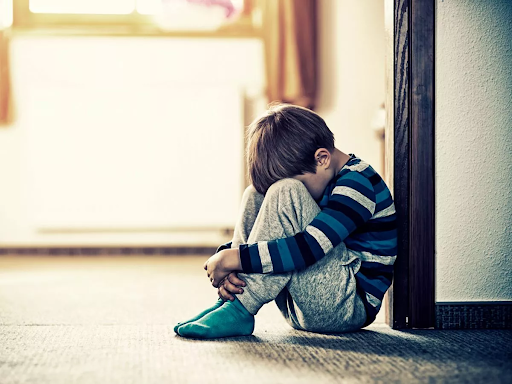
Whether you’re rejecting your child’s request to play outside due to the cold weather or refusing a playdate until their homework is complete, occasional use of the word “no” can be good for children. It specifies clear limits and indicates your caring concern. There are various ways to communicate an opposing response to a child, but it’s important to convey your intention when you do say “no.” It’s a reality that “NO” is one of the most repeatedly used words in many families, particularly when addressing children. However, are you aware of the serious impacts it might have on children, particularly toddlers? Is it crucial to reduce its frequent use?
As parents have many responsibilities, they frequently use the word “No.” Whether it’s in response to a child trying to climb a tall shelf or seeking your attention during a hectic moment, their first reaction will be “No.” Avoiding negative phrases like “No,” “Don’t do this,” or “Don’t do that” is essential to gain self-confidence in children who genuinely learn through exploration. Surprisingly, the outcomes are more intense than one might imagine. Even the least deliberate effort to decrease the use of “No” can provide children with the possibility for improved mental and psychological well-being. So, why not give it a try?
Reasons: Why It’s Important to Avoid Saying “No” to Your Children???
There are many reasons that demonstrate the importance of minimizing the use of “No”. Some of them are mentioned here:

- Frequent use of negative statements like “no” can decrease the value of these words for children over time. If you say”no” for minor situations, it may lose its effectiveness when you genuinely need it for more critical issues.
- Repeatedly saying “no” can frustrate young children and hinder them from exploring and learning about their world, leading to various challenges, and a belief that they have no say in their actions. This can restrict their sense of freedom and collaboration.
- Overusing “no” can make children feel overly restrained, limiting their opportunities to take responsibility and learn from setbacks. This may lead to an inability to make decisions independently, which can impact their growth and success in life.
- Handling children through consistent “no” reactions can leave them feeling worthless and lead to power struggles within the home. This can hinder their creativity and autonomous thinking, maybe causing conflicts and isolation from their environment.
- Excessive use of “no” might discourage children from asking for things or exploring their interests. This can choke their curiosity, self-esteem, and confidence, as they may consider it as a rejection of their opinions and contributions.
How to Use Positive Language While Communicating with Children???
It’s definitely challenging to break the habit of using negative words like “no,” “stop,” “don’t,” and “can’t.” However, it’s absolutely possible, though it may require some effort. Transformation is an endless procedure, and perfection is not the goal; constant practice is essential.
Secure the use of “No” for moments when it’s actually required. In other situations, consider substituting your direct rejection with alternative phrases such as:

- “I am afraid to say that I don’t think that’s a suitable idea.”
- “I understand your wish to play in the water, but it’s already dark, and that’s the major problem.”
- “Not at the moment. How about we jot it down and plan for it next time?”
- “Not right now. Can we do it together later?”
- Alternatively, Use a firm response: “That’s not how our family typically manages something.”
- Transform a blunt “no” into a constructive request. Instead of saying, “No, don’t run,” uplift them with, “Please try walking.”
- Be explicit about your matters and suggest a settlement rather than a covering. “No, we can’t watch TV now, It’s too late for us to watch TV right now.”
Wrap-up
A child needs to experience a sense of control and involvement in the family’s decision-making process. Giving positive responses, whenever possible, serves to comfort children and bring up their confidence. It’s essential to avoid the excessive use of negative words. In the domain of parenting, there are no absolute right or wrong answers; the strategy relies on the specific situation and keeping balance. Effective parenting is the knowledge of our children’s needs and our role in sustaining those needs as guardians.




